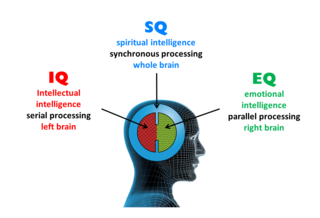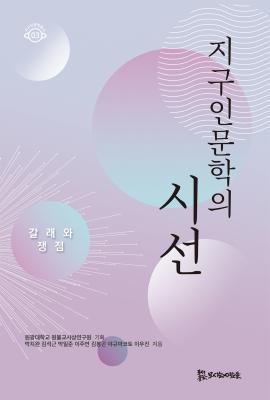
Read sample
 Audible sample
Audible sampleFollow the Author

Kris Vallotton
Follow
Spiritual Intelligence: The Art of Thinking Like God Kindle Edition
by Kris Vallotton (Author), Karen Garnaas (Foreword) Format: Kindle Edition
4.9 out of 5 stars 995 ratings
See all formats and editions
Kindle
$16.14Read with Our Free App
 Audiobook
Audiobook$0.00Included In Audible Membership
Hardcover
$50.35
1 Used from $36.5010 New from $34.40
Paperback
$22.40
13 New from $22.27
Great on Kindle
Great Experience. Great Value.
Enjoy a great reading experience when you buy the Kindle edition of this book. Learn more about Great on Kindle, available in select categories.
Enjoy a great reading experience when you buy the Kindle edition of this book.
Two quotients analyze our minds and emotions: I.Q. and E.Q. But Kris Vallotton believes we are ignoring a deeper dimension--spiritual intelligence. Because believers have the mind of Christ through the Holy Spirit, we have the capacity for brilliance. God invites us to embark on a journey of discovery as he reveals mysteries and helps us bring our perspective in line with his--transforming our understanding and endowing us with spiritual intelligence.
In this eye-opening new release, pastor and bestselling author Kris Vallotton says that God invites us to think like him. He answers questions such as
· What are the five dimensions of spiritual intelligence?
· How can I build new neural pathways to supernatural thinking?
· How do I recognize my sphere of influence and the borders of my divine assignment?
· And much more!
As you listen to the Holy Spirit and realize what it means to have the mind of Christ, you have the capacity for life-transforming spiritual intelligence unavailable in any other way.
Read more
Print length
211 pages
Product description
About the Author
Kris Vallotton (www.krisvallotton.com) is the senior associate leader of Bethel Church in Redding, California, and co-founder of Bethel School of Supernatural Ministry and Moral Revolution. Kris is also the founder of Bethel School of Technology, the chairman of Advance Redding and founder of Bethel Media. He is a bestselling author, with more than a dozen books and training manuals to help believers discover their identities as sons and daughters of God. He and his wife, Kathy, live in Redding and have four children, eleven grandchildren and a great-grandchild. --This text refers to the paperback edition.
From the Back Cover
You Have the Mind of Christ and the Spiritual Capacity for Brilliance
Two well-known quotients analyze our mental and emotional capacity: IQ and EQ. But this groundbreaking work suggests that believers are ignoring a deeper dimension of our makeup--our SQ, or spiritual intelligence. Because we have the mind of Christ through the Holy Spirit, we are capable of divine brilliance--a heightened understanding that aligns our perspective with His and reveals stunning solutions. God not only invites us to operate in this gifting, but He designed us for it!
In this eye-opening new release, pastor and bestselling author Kris Vallotton answers questions such as:
- What are the five dimensions of spiritual intelligence?
- How can I build new neural pathways to supernatural thinking?
- How do I recognize my sphere of influence and the borders of my divine assignment?
- How will an increased capacity for spiritual intelligence transform my life?
- How do IQ, EQ and SQ work together, and what does it look like to operate wholly in all three?
As you listen to the Holy Spirit and begin to realize what it actually means to think like Christ, you will embark on a life-transforming journey that will have a significant impact on the world around you.
"Kris Vallotton is about to open up a whole new context for measuring our intelligent interactions, intuitions and responses to what heaven is doing on the earth!"--Danny Silk, president, Loving on Purpose
Kris Vallotton is the senior associate leader of Bethel Church in Redding, California, and co-founder of Bethel School of Supernatural Ministry and Moral Revolution. Kris is also the founder of Bethel School of Technology, chairman of Advance Redding, and founder of Bethel Media. He is a bestselling author, with more than a dozen books and training manuals to help believers discover their identities as sons and daughters of God. He and his wife, Kathy, live in Redding and have four grown children and nine grandchildren. Learn more at www.krisvallotton.com. --This text refers to the hardcover edition.
Product details
ASIN : B087RTZ714
Publisher : Chosen Books (20 October 2020)
Language : English
Kris Vallotton
Kris Vallotton is the Senior Associate Leader of Bethel Church in Redding, California and is
cofounder of Bethel School of Ministry. Kris travels internationally training and equipping people to successfully fulfill their divine purpose. He’s a bestselling author, having written more than a dozen books and training manuals to help prepare believers for life in the kingdom. He has a diverse background in business, counseling, consulting, pastoring and teaching, which gives him unique leadership insights and perspectives. Kris has a passion to use his experience and his prophetic gift to assist world leaders in achieving their goals and accomplishing their mission. He’s the author of the popular blog, Kris Vallotton: Raw, Real & Relevant. Kris has been married to his wife Kathy since 1975, and they have four children and many grandchildren.
Connect with Kris:
Blog: http://www.krisvallotton.com
Facebook: http://www.facebook.com/kvministries
Top reviews
Top reviews from Australia
Maureen Steininger
4.0 out of 5 stars I’m intrigued.Reviewed in Australia 🇦🇺 on 25 October 2020
Verified Purchase
Love this book ... it’s opening up so many scriptures I’ve focussed on for a long time ... as I read the first paragraph a sense of excitement rose from within. It’s absolutely a ‘must read’. As soon as a hard copy is available I plan to buy that as well ... it will be well marked ... thanks Kris. I’m 81 years old and have been spirit filled for over 60 years. I’m reading it ‘bite-sized’ to ‘incubate’ what I read. Kris wrote at the end of the first chapter: Intrigued? Stay tuned for the best is yet to come. I’m intrigued ...
2 people found this helpful
HelpfulReport
Rowsco
5.0 out of 5 stars GrippingReviewed in Australia 🇦🇺 on 2 March 2021
Verified Purchase
An extremely engaging and practical resource for stepping into the life we were created for, operating from our seat in the heavenly realm and being used as vessels to bring the healing and love of the Lord to a broken world desperate for the hope we are endowed with as His children.
HelpfulReport
Anne Matheson
5.0 out of 5 stars Plugging inReviewed in Australia 🇦🇺 on 21 November 2020
Verified Purchase
Great book highlighting life changing ways to live and lead with the God given advantage. Am applying the truths and seeking to teach it to my students
One person found this helpful
HelpfulReport
See all reviews
Top reviews from other countries
Mrs Jean Balfour
4.0 out of 5 stars Are you ready to be stretched?!Reviewed in the United Kingdom 🇬🇧 on 29 December 2020
Verified Purchase
I have learnt and appreciated much from all of the books that I have read by Kris Vallotton.This is a book that needs to be read several times to really get hold of the challenges of living from spiritual intelligence or sq. I appreciated having a hard copy so that I can highlight and make notes as I go along. There's an assessment questionnaire at the end to evaluate how effectively one is functioning in using spiritual intelligence which I didn't fill in! Maybe its just me ,but I don't feel able to quantify things in that way!
Above all else I want ears to hear what Holy spirit is saying so that I may be more effective in using his intelligence in daily life.This is a great tool for that purpose .
5 people found this helpfulReport
Peter Riley
5.0 out of 5 stars All you wanted to know about the exciting verses in the Bible but were afraid to askReviewed in the United Kingdom 🇬🇧 on 27 February 2021
Verified Purchase
I believe this is a book inspired by the Holy Spirit to catalyse a paradigm shift in contemporary Christianity. All those true verses in The New Testament that most theologians have glossed over are expounded with wisdom and real-life examples. What does it mean to "have the mind of Christ"? Does "My sheep recognise my voice" actually mean I can hear clearly from Jesus? How can the tantalising possibility to "Be transformed by the renewing of your mind" actually work? Kris answers all these questions and many more to help us become more like Jesus and develop our own Spiritual Intelligence in order to live a life that can impact on the real challenges we all face in everyday life at home and work.
3 people found this helpfulReport
Shishya
1.0 out of 5 stars fanatical Christian
Verified Purchase
I wanted to like this book— but a third in , the author turns into the stereotypical closed minded Christian. Calling new agers devil worshippers, saying meditation is a way to invite the devil in.
And I was like , no thanks. I thought I was reading a spiritual uplifting book, not a “those who follow a different path are devil worshippers. “
One person found this helpfulReport
Paul Dixon
5.0 out of 5 stars Super insightful, practical, and easy to access. Buy it!Reviewed in the United Kingdom 🇬🇧 on 1 March 2021
Verified Purchase
I loved this book! I loved reading someone who was speaking my language, before I even realized that was the language God spoke! The concept of hearing from God, in all areas of our lives, is a message that is needed all across the world, and Kris manages to both communicate how to do this clearly and draw the reader in to his every word. Heartily recommended!
One person found this helpfulReport
Alister Cryan
5.0 out of 5 stars MoreReviewed in the United Kingdom 🇬🇧 on 23 April 2021
Verified Purchase
I always listen to Kris speak or read Kris Vallotton's books wishing I could hang out with him. As always really insightful and fascinating reading.
One person found this helpfulReport








